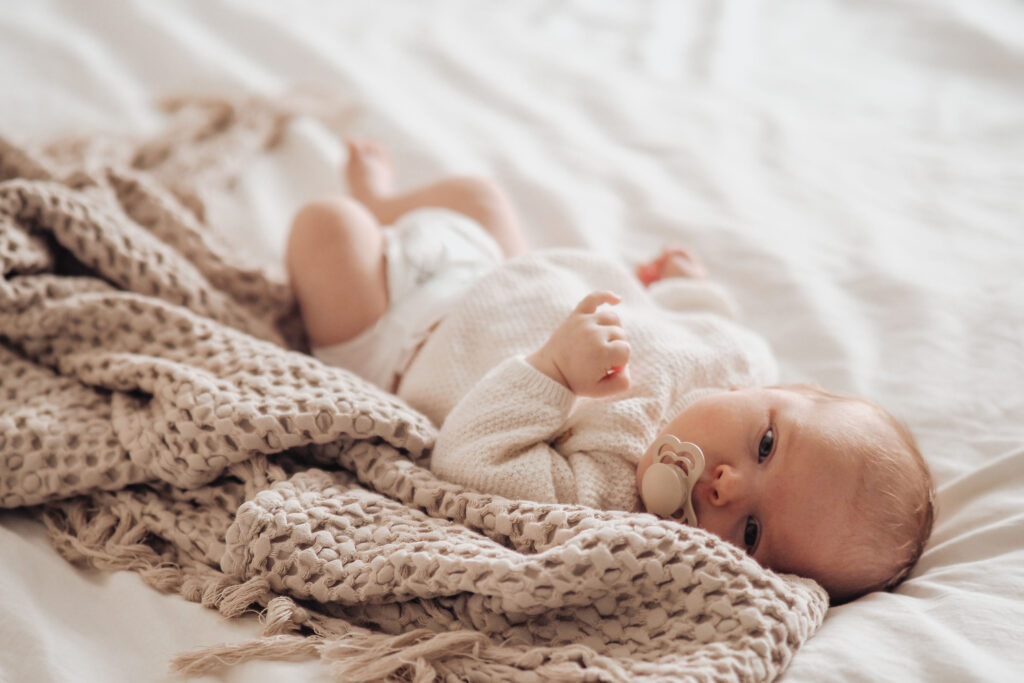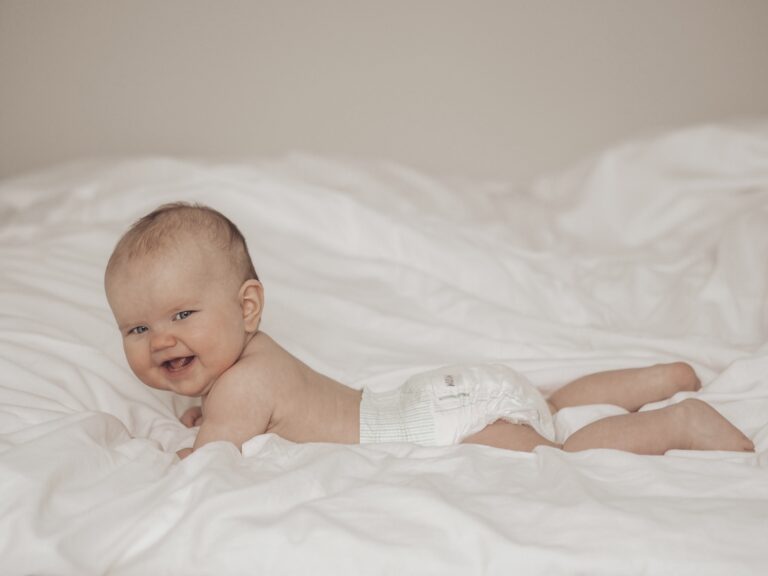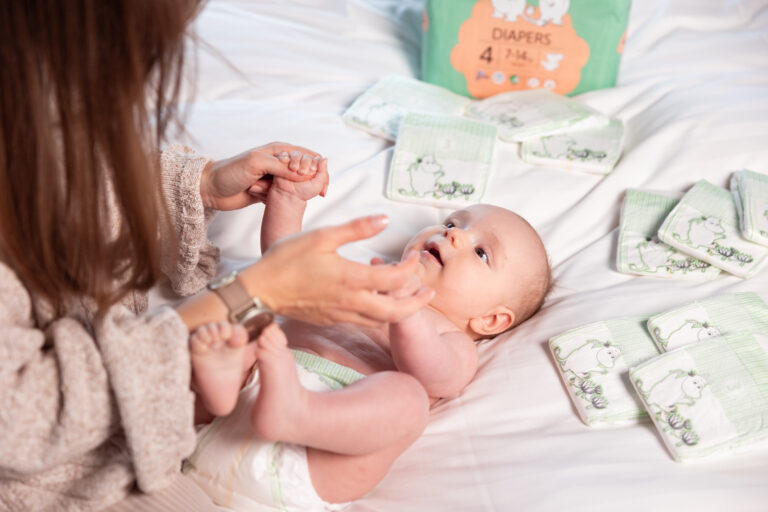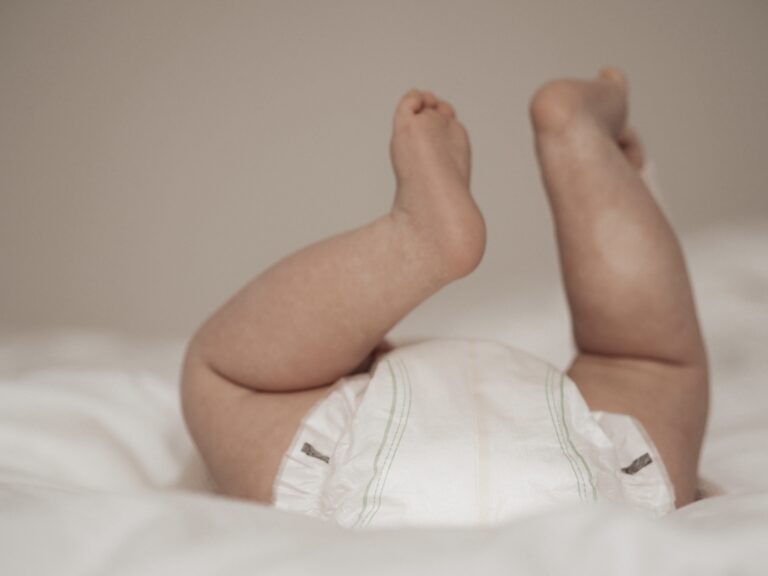The first year in a child’s life is full of unique and significant stages of development. In this article, we look at what you can expect in your baby’s first year. We go through the monthly stages and give tips on how you can support your child’s growth and development. Every baby is unique and will reach these stages at their own pace. Read more and get ready to enjoy every precious moment with your baby.
The first three months: The beginning of a new life
A baby’s first three months are full of significant changes. A newborn, who initially sleeps and eats most of the time, begins to activate and react to their environment. The first smiles and vocalizations appear, as well as sight tracking and recognition. The development is fast: the baby starts to raise their head, move their arms and legs more actively and gradually develops the ability to grasp objects. These three months are the foundation for the baby’s future learning and development.
6 months: The development of motor skills and senses
At the age of six months, the baby begins to develop motor skills such as grasping, sitting with support and turning from back to stomach. The baby also begins to explore their surroundings with their senses more and more actively. Touching, tasting and listening to objects are part of the development of the senses of a child of this age. It is important to offer the baby a variety of different sensory stimuli to support their development.
Find out more about your baby’s motor development here!
9 months: Baby’s physical and cognitive development
At the age of nine months, the baby’s physical development is rapid. They may crawl, sit unsupported and even stand up against support. Fine motor skills develop, and the baby learns to grasp objects with the thumb and forefinger. Cognitively, the baby recognizes familiar faces, imitates sounds and understands simple words. In addition, they begin to show interest in the world around them by exploring objects such as toys.
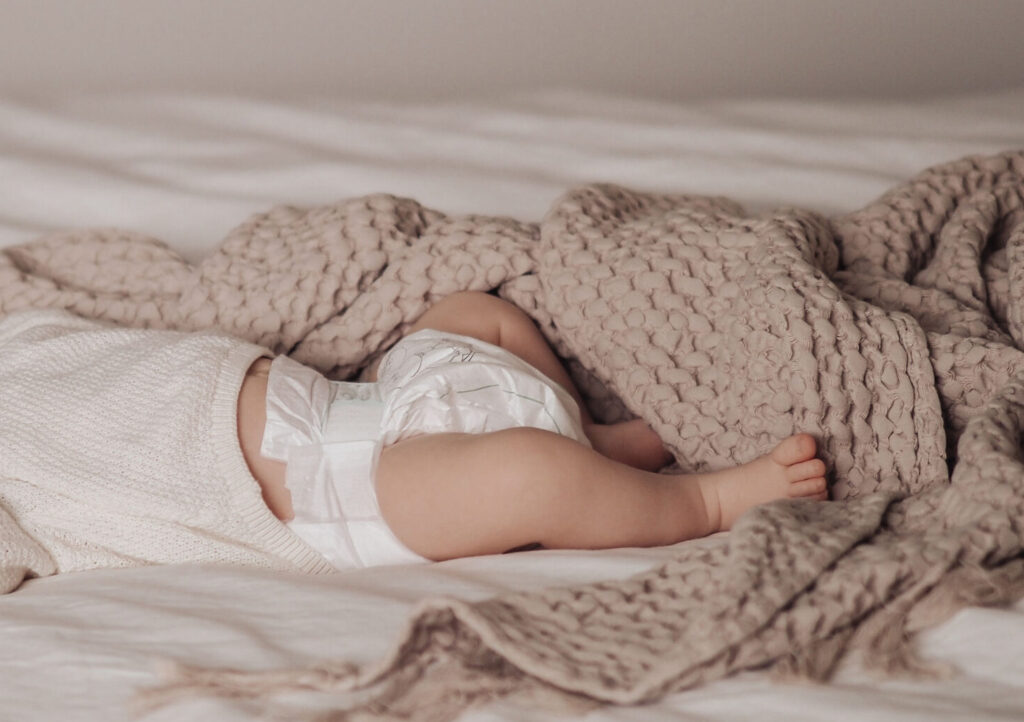
12 months: Development of fine motor skills and social skills
During the first year of a baby’s life, fine motor skills develop as grip improves and small objects become familiar. The baby learns to grasp toys, move items from hand to hand and direct his or her hands towards a desired object. Social skills also develop: your baby starts to recognise familiar people, show affection and express emotions in different ways. The baby may also imitate simple gestures and facial expressions, which is a sign of developing social understanding.
Baby’s sleep during the first year
Your baby’s sleep changes during the first year of life. In the early months, your baby sleeps most of the day, but often wakes up to eat. By six months, sleep patterns start to look more like those of an adult, and night-time sleep becomes longer. It is important to remember that each baby is an individual and sleep patterns can vary widely. Supporting a developing sleep rhythm and establishing regular sleep routines will help your baby sleep better.
Read five easy ways to help your baby sleep better here!
Baby’s nutrition and dietary development
Your baby’s nutrition has a major impact on their growth and development during the first year. For the first few months, your baby gets all the nutrients they need from breast milk or formula. At the age of six months, solid foods can be introduced, initially in small amounts. Introducing solid foods broadens your baby’s diet and helps them get used to different taste and texture experiences, which is important for their subsequent eating behaviour.
There are many ways to support your baby’s development during the first year.
Baby’s health checks and vaccinations in the first year
Health checks in the first year are important to monitor your baby’s growth and development. Your doctor will measure your baby’s weight, height and head circumference, check physical health and assess developmental progress. During this time, your baby will also receive their first vaccinations, such as hepatitis B, tetanus, diphtheria, whooping cough and polio, to ensure protection against serious diseases.
How to support your baby’s development during the first year?
There are many ways to support your baby’s development during the first year. Provide regular touch and interaction, create a safe and stimulating environment, read aloud and talk to your baby daily. Use baby toys that promote motor skills and sensory development. Ensure balanced nutrition and adequate sleep. Encourage your baby to explore their environment and support their independence. Remember that each baby develops at their own pace, so be patient and support your baby’s unique learning process.
Read more about the importance of skin contact for your baby here!
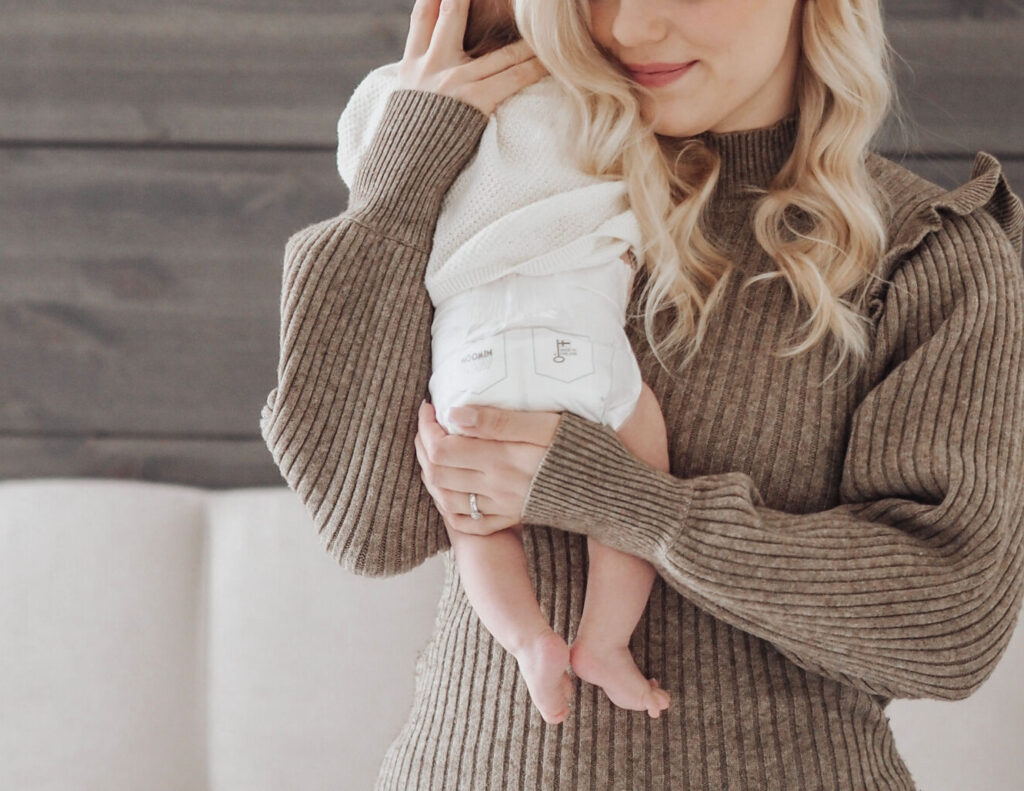
Milestones and highlights of the first year
During the first year, your baby’s development undergoes significant changes. In the early months, your baby learns to lift their head, grasp objects and smile. By the age of six months, they are likely to be crawling, sitting supported and responding to sounds. By nine months, they may be able to stand up with support and recognise familiar people. By the age of one, many babies are walking, saying their first words and eating solid food on their own.
After the first year: What’s next?
After the first year, your baby continues to develop rapidly. They start to move more independently, improve motor skills such as the pinching motion, and develop their cognitive skills. Communication develops significantly and the baby begins to understand simple commands. Social skills also improve as the child learns to recognise familiar people and express pleasure and displeasure. The child’s personality begins to take shape more clearly. Parents should continue to be actively involved in the child’s development, providing a safe and supportive environment and helping the child to learn new skills.






